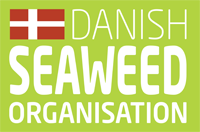LEGISLATION COVERING SEAWEED PRODUCTION
The establishment of a seaweed farms will in Denmark demand a license from the Coast directorate with reference to the law to protect the coast (LBK 267/2009). The Coast directorate will evaluate if the facility would possibly substantially impact an international nature reserve, and evaluate the consequences of a seaweed facility in the specific area (BEK 874/2008). Within this there will also be a hearing of other affected public authorities, and the Coast directorate will conclude if an environmental impact assessment is needed with reference to the declaration about environmental evaluation of certain facilities at the territory of sea (BEK 579/2013; Blue biomass, 2016).
A license is typically based on 5 years duration with the possibility to prolong.
Seaweed can also be cultivated organically in accordance with regulation EU 710/2009 and declaration 1671 of 22/12/2010. In brief, no non-organic fertilizer or nutrient addition can be used in the hatchery phase and early germination, the location needs to be classified as an area that are not within a location that are not suited for organic aquaculture, if near a fish farm that needs to be organic, and the boats that service the deployed seaweed culture should not have used anti-fouling on the boat hull, and should keep a strict log book proving that the boat has not been near a non-organic fish farm etc. The certification of an organic seaweed farm can be applied for at the Ministry of Environment and Food.
Gathering of seaweed for private consumption or sale are allowed since there is no law prohibiting this raw material reclamation. When this gathering/harvest of natural populations occurs, and it is for the means of trade, the below regulations for seaweed manufacturing need to be respected.
Industrialized/mechanized harvest of natural populations is not effectuated in Denmark, and there are doubts that the standing stock of natural populations can actually sustain this in Denmark.
Certification for organic seaweed from harvest of natural seaweed population is only considered organic for one Danish harvester at present.
References: Blue biomass (2016). Blå biomasse – potentialer og udfordringer for opdræt af muslinger og tang. DTU Aqua-report no. 312-2016 (in Danish). Petersen, J.K., Bjerre, A-B., Hasler, B., Thomsen, M., Nielsen, M.M., Nielsen, P. pp. 39.
